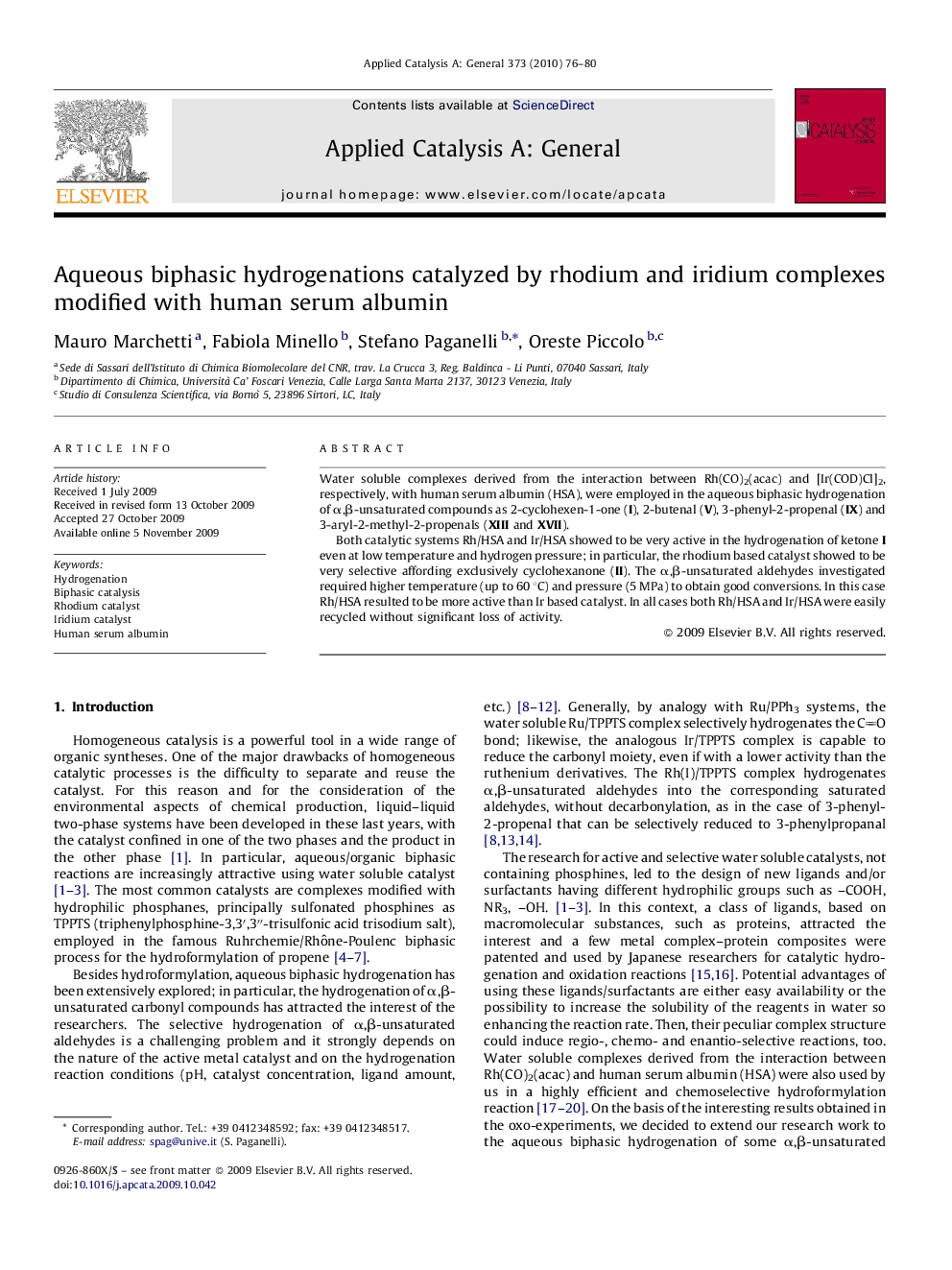| Article ID | Journal | Published Year | Pages | File Type |
|---|---|---|---|---|
| 42227 | Applied Catalysis A: General | 2010 | 5 Pages |
Water soluble complexes derived from the interaction between Rh(CO)2(acac) and [Ir(COD)Cl]2, respectively, with human serum albumin (HSA), were employed in the aqueous biphasic hydrogenation of α,β-unsaturated compounds as 2-cyclohexen-1-one (I), 2-butenal (V), 3-phenyl-2-propenal (IX) and 3-aryl-2-methyl-2-propenals (XIII and XVII).Both catalytic systems Rh/HSA and Ir/HSA showed to be very active in the hydrogenation of ketone I even at low temperature and hydrogen pressure; in particular, the rhodium based catalyst showed to be very selective affording exclusively cyclohexanone (II). The α,β-unsaturated aldehydes investigated required higher temperature (up to 60 °C) and pressure (5 MPa) to obtain good conversions. In this case Rh/HSA resulted to be more active than Ir based catalyst. In all cases both Rh/HSA and Ir/HSA were easily recycled without significant loss of activity.
Graphical abstractThe catalytic systems Rh/HSA and Ir/HSA (HSA = human serum albumin) were active in the aqueous biphasic hydrogenation of representatives α,β-unsaturated substrates. Both catalysts were easily recycled without significant loss of activity.Figure optionsDownload full-size imageDownload high-quality image (79 K)Download as PowerPoint slide
